Ritomune 100 Mg
$60.00 – $170.00
Ritomune 100 mg contains Ritonavir, an antiretroviral medication used in the treatment of HIV infection. It works as a protease inhibitor, preventing the virus from multiplying, and is also used as a booster to enhance the effectiveness of other HIV medications. Ritomune is taken as part of antiretroviral therapy (ART) and should be used under medical supervision for safe and effective results.

NHS AFFILIATED DOCTORS

FDA APPROVED PHARMACY

AFFORDABLE PRICE GURANTEE

FAST & TRUSTED DELIVERY
Ritomune 100 mg contains Ritonavir, a protease inhibitor used in the treatment of HIV-1 infection. It is primarily used as a pharmacokinetic booster to enhance the effectiveness of other antiretroviral drugs by increasing their concentration in the blood. This helps in maintaining better viral suppression and improving immune function.
Active Ingredient
- Ritonavir 100 mg
Indications
- HIV-1 Infection: Used in combination with other antiretroviral drugs to manage and control HIV.
- Boosting Other Protease Inhibitors: Increases the effectiveness of certain HIV medications like Lopinavir, Atazanavir, and Darunavir.
Key Features
- Boosts Antiretroviral Therapy: Helps improve drug absorption and prolongs the action of HIV medications.
- Enhances Viral Suppression: Helps lower the HIV viral load and improves CD4 cell count.
- Reduces Drug Resistance: Ensures consistent levels of protease inhibitors in the bloodstream.
- Improves Treatment Outcomes: Used as part of combination therapy for better control of HIV infection.
How to Use
Administration:
- Take one Ritomune 100 mg tablet orally with a glass of water.
- Should be taken with food to improve absorption and reduce stomach discomfort.
- Follow your doctor’s instructions carefully, as dosage depends on the other HIV medications being used.
Dosage:
- Typically used once or twice daily in combination with other protease inhibitors.
- Always follow the prescribed regimen to avoid drug resistance.
Precautions
- Not a Cure: Ritomune does not cure HIV/AIDS but helps in managing the infection.
- Do Not Skip Doses: Missing doses can lead to drug resistance and treatment failure.
- Liver Monitoring: Regular liver function tests are needed, as Ritonavir may affect liver health.
- Heart Risk: Patients with heart disease or a history of irregular heartbeat should consult their doctor before use.
- Drug Interactions: Avoid taking Ritomune with certain medications, including sedatives, blood thinners, and cholesterol-lowering drugs, as it may cause harmful interactions.
- Pregnancy & Breastfeeding: Consult a doctor before use, as HIV transmission to the baby may still be possible.
Side Effects
Common Side Effects:
- Nausea
- Vomiting
- Diarrhea
- Abdominal pain
- Weakness or fatigue
Serious Side Effects (Rare):
- Liver damage (yellowing of skin or eyes, dark urine)
- Increased blood sugar (frequent urination, excessive thirst)
- Changes in heart rhythm
- Severe allergic reactions (swelling of face, lips, or throat)
Frequently Asked Questions (FAQ)
1. What is Ritomune 100 mg used for?
Ritomune is used to boost the effectiveness of other HIV protease inhibitors by increasing their levels in the bloodstream, helping to manage HIV infection.
2. Can Ritomune be taken alone?
No, Ritomune must be taken in combination with other antiretroviral medications.
3. How does Ritonavir work?
Ritonavir blocks the HIV protease enzyme, preventing the virus from replicating. It also enhances the effect of other protease inhibitors.
4. Can I drink alcohol while taking Ritomune?
It is best to avoid alcohol, as it may worsen liver side effects and reduce drug effectiveness.
5. Is Ritomune safe for pregnant women?
Pregnant women should consult a doctor before use. HIV treatment during pregnancy is important to prevent transmission to the baby.
6. How long do I need to take Ritomune?
HIV treatment is lifelong, and Ritomune should be taken as prescribed by your doctor for effective viral control.
| Pack Size | 60 Tablet/s, 120 Tablet/s, 180 Tablet/s |
|---|


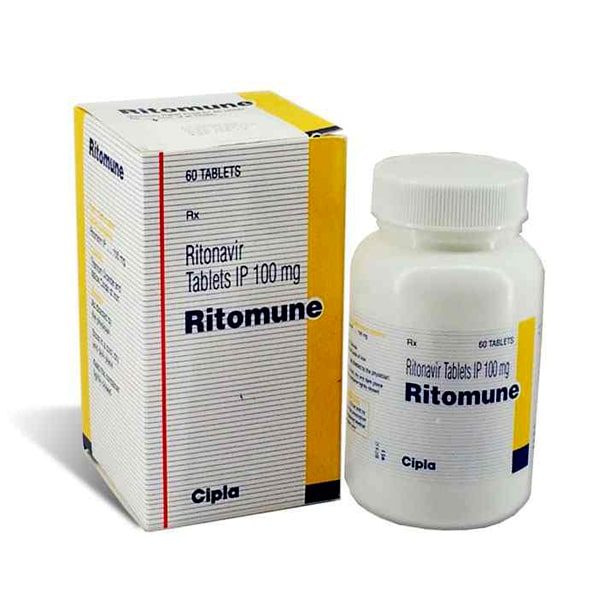

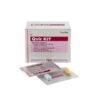
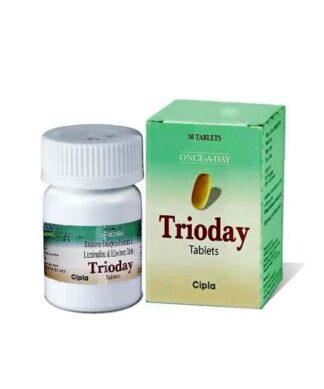
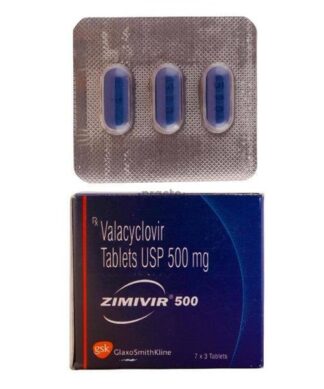



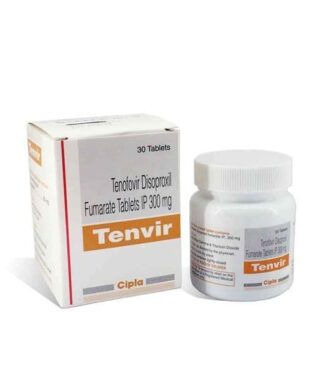

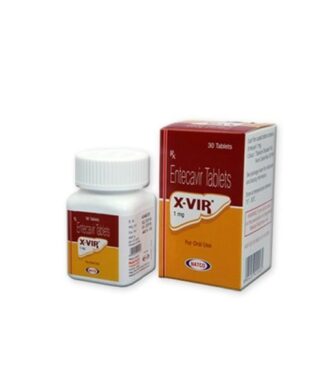
mythrain –
Ritomune 100 mg is like having a superhero guardian for my immune system! The moment I take it, I feel a surge of energy, as if my body is gearing up for battle against any potential invaders. It’s my secret weapon to stay invincible in the face of health challenges!